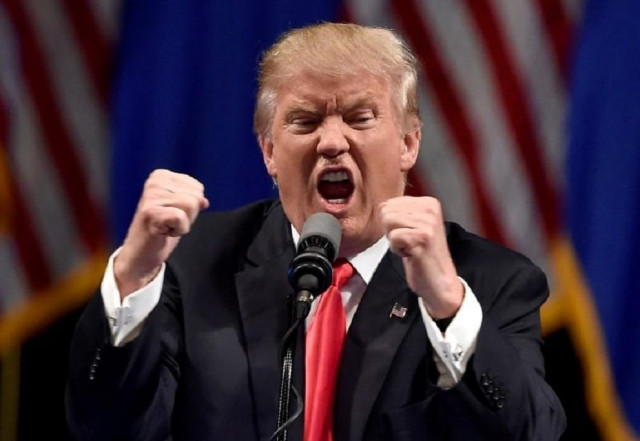Trump ordered Mueller's firing but reversed course: report
Trump had accused Mueller of three conflicts of interest that he argued disqualified him from running the probe

US President Donald Trump. PHOTO: REUTERS/FILE
Mueller is leading the probe into allegations of collusion between the US president's campaign team and Russia in the 2016 election, which Trump has repeatedly criticized and views as an attack on the legitimacy of his presidency.
The Republican leader gave the order in June 2017, according to the Times, but White House counsel Don McGahn refused, saying it would have a "catastrophic effect" on Trump's presidency.
After McGahn threatened to quit, Trump backed down, The Times reported, citing four anonymous sources.
White House counsel Ty Cobb declined to comment on the matter, the newspaper said.
Trump had accused Mueller of three conflicts of interest that he argued disqualified him from running the probe, The Times said.
Trump mimics Modi’s Marathi accent
The alleged conflicts were as follows: Mueller had terminated his membership at a Trump golf course over a dispute about fees, had previously represented the president's son-in-law Jared Kushner, and had been interviewed for a possible return as director of the FBI before he was appointed as special counsel.
On Wednesday, Trump for the first time directly said that he would cooperate with Mueller, whose investigation he had previously dismissed as a "witch hunt."
"I would love to do it," Trump told reporters in the White House when asked about testifying.
"I would do it under oath, absolutely," he added.
Any interview of a US president in an investigation is fraught with issues of executive privilege -- how much and in what context the US leader can be forced to disclose information.
In Trump's case, it also raises deep concerns that his shoot-from-the-hip outspokenness could jeopardise his own legal position.



















COMMENTS
Comments are moderated and generally will be posted if they are on-topic and not abusive.
For more information, please see our Comments FAQ